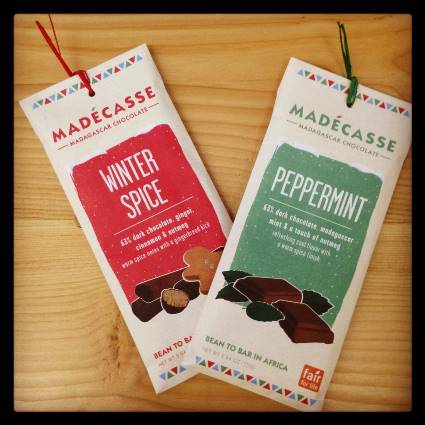
Do you realize that there are only eight days 'till Thanksgiving? It’s one of my favorite holidays, not only because of the opportunity to break bread (and a wishbone) with family, but because of the underlying reason for the gathering, that of being grateful.
I recognize that it’s also — or rather was — the starting gun for the beginning of holiday sales. Seems retailers are jumping that gun earlier and earlier each year, with Christmas songs already on the radio and pre-Thanksgiving Christmas sales in full force.

|
| Bernie Pacyniak |
But before we all get caught in the rush — and even this curmudgeon finds it difficult to steer clear of the madness — I’d like to reaffirm the benefits of being in the confectionery industry, one that not only brings sweet smiles to children and adults alike, but also provides opportunities for many struggling to survive on the other side of the globe.
An e-mail this morning reminded me of what’s possible in our sector. The subject line said: “Redefine chocolate’s manufacturing process. Alleviate poverty.”
Of course, you know that if it has anything to do with chocolate manufacturing, I’m going to open it and read it. To my surprise, the e-mail, which came from Ryan Hallett at Group SJR, a New York City-based marketing and publishing company, focused on Tim McCollum, co-founder of Madecasse, a chocolate company based in Madagascar.
As Hallett’s e-mail revealed, Levi Strauss & Co. featured McCollum on its website publication, Unzipped, as part of a short profile on him (Eat Chocolate, End Poverty: Modern Pioneer Tim McCollum’s Sweet Change.)
It’s a brief and breezy profile about a man who’s made sustainable chocolate his life’s work. And OK, you get to find out that he loves wearing Levi jeans. You knew that was a given. But it’s enjoyable to see positive press about someone who’s actually making a difference in Madagascar through chocolate.
Now, now, I can hear some of you cynics pooh-poohing the efforts of McCollum and Brett Beach. I mean what can a couple of former Peace Corps volunteers (that’s how the two became familiar with Madagascar and fell in love with the country and people) accomplish?
Seems like quite a lot — although it wasn’t easy. Established in 2006, it took a few years for the two entrepreneurs to get the high quality cocoa bean necessary for producing a premium chocolate. Working with a cooperative on the island, the two invested in equipment and training to establish standards for fermentation and drying — key elements for ensuring high quality cocoa beans.
Well, in 2009 they won Best in Show at the New York Chocolate Show, following Best in Show at the 2011 Paris Salon du Chocolat and a gold award at the 2011 San Francisco Chocolate Salon. They garnered a 2012 Good Food Award Chocolate winner and were recognized as a 2012 Global Leader of Global Change by the United Nations and Foundation for Social Change. Oh yeah, it was also deemed to be one of the world’s 50 most innovative companies by Fast Company magazine in 2011.
Seems like people have not only recognized their products but also what they stand for, which is helping a country by harnessing its wealth, in this case cocoa (and vanilla. The company also exports high quality vanilla.) As their website states, they are providing jobs and opportunities.
And yes, I realize that Madecasse isn’t the only confectionery company doing good works out there. From multinationals to fledgling artisanal bean-to-bar chocolate makers, chocolatiers and confectioners, there’s plenty of philanthropy going on.
This example, however, stood out for its direct connection. And it made me feel good about the industry, which I’m always thankful for.

